i bc27f85be50b71b1 (232 page)
Read i bc27f85be50b71b1 Online
Authors: Unknown
adhere to the medication protocol post transplant and be able to
monitor for signs and symptOms of infection, rejection, and toxicity to the medications. Patients are instructed to monitor daily their


ORGAN TRANSPLANTATION
741
temperature and weight, inspect mouth and gums, maintain proper
oral hygiene, and report fever or infectious symptoms .
• On discharge to home, transplant recipients should participate
in a daily home exercise routine. The physical therapy deparrment
or the organ transplant team may have preprinted exercise protocols. Otherwise, the physical therapist should cusromize an individual exercise program that consists of stretching and strengthening exercises and a walking or aerobic program that
includes a warm-up and cool-down period. A gradual increase in
ambulation to at least 30 minutes a day is recommended. An activity log may be used ro document the patient'S progress.
• Strenuous exercise and activities that stretch or put pressure on
the incision should be avoided until approximately 2 months after
discharge from the hospital. In addition, transplant recipients
should avoid pushing, pulling, and lifting more than 10 Ib until
then. Contact sporrs should be avoided for life afrer transplantation to prevent trauma to the rransplanred organ?
Organ transplantation provides a patient with end-stage organ disease an opportunity to improve his or her quality of life by receiving a donated organ, "the gift of life." With ongoing commitment and hard
work, transplant recipients can regain an independent, healthy, and
active lifestyle. The number and success rate of organ transplantations will conrinue to grow with continued advances in organ preservation, surgical techniques, tissue matching, immunosuppression protocols, management and monitoring of rejection, and antibiotic
protOcols.
References
I . Kjaer M, Beyer
, Secher NH. Exercise and organ transplantation.
Scand J Med Sci Sports 1 999;9: 1-14.
2. Doenges ME, Moorhouse MI-� Geissler AC (eds). Nursing Care Plans:
Guidelines for Individualizing Patient Care (4th ed). Philadelphia: FA
Davis, 1 997;774.
3. Arcasoy SE, Korloff RM. Lung rransplanration. N Engi J Med
1 999;340( 1 4): 1 0 8 1 -109 1 .
4. Kesten S. Advances in lung transplantation. Dis Mon 1 999;45(3): 1 0 1 - 1 14.
5. Becker C, Petlin A. Heart transplantation: minimizing mortality with
proper management. Am J Nurs 1 999;(SuppJ 5):S- 1 4.

742 AC� CARE HANDBOOK FOR PHYSICAL THERAPISTS
6. Black JM, Matassarin-Jacobs E (cds). Medical-Surgical Nursing: Clinical Management for Continuity of Care (5th ed). Philadelphia: Saunders, 1 997;584-585, 64 1 -65 1 , 1 1 48, 1 352-1 353, 1 898-190 1 , 1 9 3 1 .
7 . Jenkins R L (cd). A Guide for Transplant Recipients. Burlington, MA:
Lahey Clinic, 2000.
8. Atkinson LJ, Howard Fortunato N (cds). Operating Room Technique
(8rh ed). Bosron: Mosby, 1 996;897-9 12.
9 . Monahan FD, Neighbors M. Medical-Surgical Nursing (2nd ed). Philadelphia: Saunders, 1 998;227-229, 480-483, 1 1 96- 1 1 98, 1408- 1 4 1 1, 1 448-'1455, 1488-149 1 .
10. Winkel E, DiSesa VJ, Costanzo MR. Advances in heart transplantation.
Dis Mon 1 999;45(3):62-87.
1 1 . Sadowsky HS. Cardiac transplantation: a review. Phys Ther 1996;76(5):
498-5 1 5 .
1 2. Smith SL. Tissue and Organ Transplantation. St. Louis: Mosby, 1 990,
27-28, 179, L83, 202-203, 2 1 8, 220, 245, 257, 267, 287, 309.
1 3. Grenvik A, Ayres SM er al. (eds). Texrbook of Crirical Care (4rh ed).
Philadelphia: Saunders, 2000; 1 938-1985.
14. O'Connell JB, Bourge RC, Costanzo-Nordin MR, et al. Cardiac transplantation: recipient selection, donor procurement, and medical followup. Circularion 1 992;86(3): 1 06 1- 1 075.
1 5 . Gruessner RWG, Kendall OM, Drangstveit MB, et al. Simultaneous
pancreas-kidney t.ransplantation from live donors. Ann Surg 1 997;
226(4):47 1-482.
1 6 . Meyers B"� Patterson GA. Lung transplantation: currem status and
furure prospecrs. World J Surg 1999;23: 1 1 56-1 162.
17. Hall JB, Schmidr GA, Wood LDH (eds). Principles of Crirical Care (2nd
cd). New York: McGraw-Hili, 1998; 1 093-1 094, 1 325-1 339.
1 8 . Luckmann J (cd). Medical-Surgical Nursing. Philadelphia: Saunders,
1 980; 1 67, lO l l .
1 9 . Jenkins RL (ed). Liver Transplanration ProtOcol Manual. Burlingron,
MA: Lahey Clinic, 1 999;7, 8, 33, 37-4 1 .
20. Sheiner PA, Magliocca JF, Bodian CA, er al. Long-term medical complications in patients surviving � 5 years after liver transplant. Transplanrarion 2000;69(5):78 1-789.
2 1 . Zavorsky KE, Sapienza J. \Vood D. Nursing implications for ED care of
patients who have received heart transplants. J Emerg Nurs 200 I :33-39.
22. Lynn-McHale 0, Dorozinsky C. Cardiac Surgery and Heart Transplantation. In Bucher L, Melander S (eds), Critical Care Nursing. Philadelphia: Saunders, 1 999;330-348.
23. Manske CL. Risks and benefits of kidney and pancreas transplantation
for diaberic pariems. Diaberes Care ·1 999;22(Suppl 2):S 1 1 4-S 1 1 9.
24. Sigardson-Poor KM, Haggerry LM (eds). Nursing Care of rhe Transplam Recipiem. Philadelphia: Saunders, 1 990; 1 24, 149- 1 5 1 , 1 87, 208, 2 1 0-2 1 1 , 287.
25. Bartucci MR. Kidney transplanration: state of the art. AACN Clin Issues
1999; 1 0(2): 1 53-163.
26. Pizer HF (ed). Organ Transplants: A Patient's Guide. Cambridge. MA:
Harvard University Press, 1 99 1 ; 1 55.


ORGAN TRANSPLANTATION
743
27. Nolan MT, Augustine SM (cd). Transplantation Nursing: Acute and
Long·Term Management. Stamford, Cf: Appleton & Lange, 1 995;20 1 ,
2 1 3-226.
28. Schluger LK, Klion FM. The indications for and timing of liver transplantation. J Intensive Care Med 1 999; 14(3), I 09-1 1 6.
29. Busurril RW, Goss JA. Split liver transplantation. Ann Surg 1 999;
229(3),3 1 3-32 1 .
30. Neuberger J. Liver rransplanration. QJ M 1 999;92,547-550.
3 1 . Shapira Z, Yussim A, Mor E. Pancreas transplantation. J Pediatr Endocrinol Metab 1 999; 1 2( 1 ),3- 1 5.
32. Cicalese L, Giacomoni A, Rastellini C, Benederri E. Pancreatic transplantation: a review. Int Surg 1999;84:305-312.
33. Berkow R, Fletcher AJ. (eds). The Merck Manual ( 1 6th ed). Rathway,
NJ' Merck & Co, 1 992;360-36 1 .
34. Freise CE, Narumi S, Stock PG, Melzer JS. Simultaneous pancreas-kidney transplantation: an overview of indications, complications, and outcomes. Wesr J Med 1 999; 1 70( 1 ), I 1 - 1 8.
35. McChesney LP. Advances in pancreas transplanration for the treatment
of diabetes. Dis Man 1 999;45(3),88- 1 00.
36. Hricik DE. Combined kidney-pancreas transplantation. Kidney Int
1 998;53, I 09 1-1 097.
37. Arthur EK. Rehabilitation of potential and cardiac transplant recipients.
Cardiopulmonary Rec APTA Section 1 986;U 1-13.
38. Hillegass EA, Sadowsky H (cds). Essentials of Cardiopulmonary Physical Therapy. Philadelphia, Saunders, 1 994; 1 65-166, 3 1 4-3 1 5.
39. Edinger KE, McKeen 5, Bemis-Dougherry A, et al. Physical therapy following hearr rransplant. "hys Ther Pract 1 992; I (4),25-33.
40. Young MA, Stiens SA. Rehabilitation Aspects of Organ Transplantation. In Braddom RL (ed), Physical Medicine and Rehabilitation (2nd ed). Philadelphi., Saunders, 2000;1385-1 400.
4 1 . Frownfelter D, Dean E (eds). Principles and Practice of Cardiopulmonary Physical Therapy (3rd ed). St. Louis, Mosby, 1 996;703-71 9.
42. Goodman CC, Boissonnault WG (eds). Pathology, Implications for the
I'hysical Therapisr. Philadelphia, Saunders, 1 998;120, 340-344, 363-
366, 3 8 1 , 437-438.
43. Reichenspurncr H, Diencmann H, Rihl M, et al. Pulmonary rejection
diagnosis after lung and hean-Iung transplantation. Transplant Proc
1 993;25(6),3299-3300.
44. James Me. Physical therapy for patients after bone marrow transplantation. Phys Ther 1 987;67(6),946-952.
45. Nettina SM (ed). The Lippincott Manual of Nursing Practice (6th ed).
Philadelphia, Lippincott-Raven, 1 996;79 1-797.
46. McGlave P. Hematopoietic stem-cell transplantation from an unrelated
donor. Hasp Pract (Off Ed) 2000;35(8),46, 49, 50.
